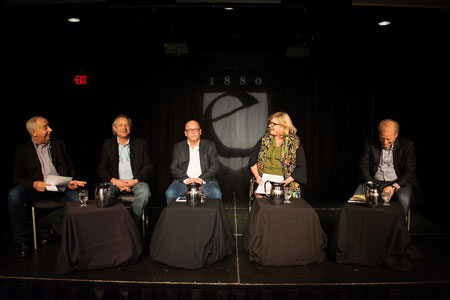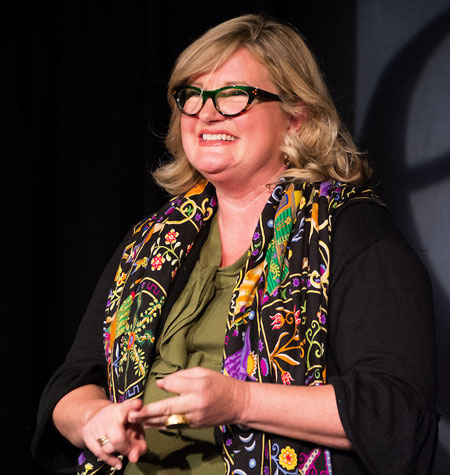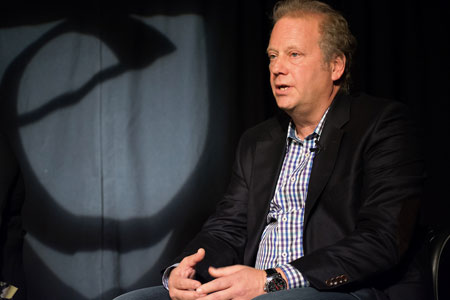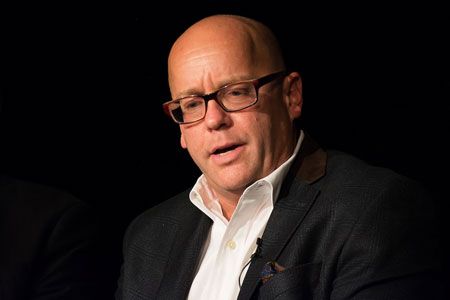Overseers discuss digital revolution

Titans of the television and radio industries talked with Emerson students about the rapid rise in digital distribution and its major impact on the entertainment landscape in a panel discussion at the Cabaret on October 24.
“Five years ago, my division never sold a piece of content to Netflix. Today, they’re my largest client,” said panelist Dan Cohen, executive vice president of pay TV and interactive media for Disney/ABC, who said his job includes selling licensing of ABC and Disney shows.
Cohen and three of the panelists are members of the Emerson Board of Overseers. Also on the panel was Kevin Bright ’76, former executive producer of Friends, who is now senior executive director of Emerson College Los Angeles.
“The good news for us who wish to create content [is] there seems to be more opportunities than ever before,” Bright said.
Lisa Dollinger, P ’10, former chief communications officers for Clear Channel, said we’re in “the golden age of radio” with many new opportunities for younger professionals.
“[There is] an increasing importance of mobile, and, in turn with that, the car,” Dollinger said. “It’s all about the connected car. Right now, there’s a race to the dashboard.”

Dollinger said Pandora has been a major success, and is hiring many new advertising representatives.
Digital distribution of TV shows through outlets such as Netflix and Hulu has dramatically affected the logistics behind financing and producing those shows, Cohen said. Traditionally, producers aimed to create shows that could be sold to local stations for syndication—meaning the shows needed to have several successful seasons in order to create a substantial number of episodes that could be repeated.
But that model is disappearing.
“Scandal is a good example,” Cohen said. “Season one…the ratings weren’t great. We sold it…to Netflix and let them put up the episodes prior to season two. We couldn’t have done that in traditional television [because] there were only eight episodes. What happened is that people found it. Season two started off higher [in ratings] than season one.”

This scenario has changed how shows are created, causing more cliffhangers to be written into TV shows, said Bright, while addressing the rise of so-called “binge viewing.”
“It’s not [about] coming back the following week. It’s about not stopping watching,” Bright said. “The cliffhanger [is] going to make you come back. In the digital world, it’s going to make you immediately click on the next episode.”
Gary Krantz ’81, chief executive officer of Krantz Media, said the TV and radio landscape has been “undemocraticized,” but there are many opportunities because of that.
“My son wants to be an announcer for the Yankees. But the last time I checked, that’s one job and the same guy has had it for 40 years,” he said. “When you watch the [World Series] tonight, see how many people are needed to put together that event. There’s so much opportunity.”

The discussion was moderated by Daniel H. Black, chair of the Board of Overseers, who was named Entertainment Lawyer of the Year by the Century City Bar Association in March. The event was organized by the offices of Communications and Marketing and Graduate Studies, and the Emerson Board of Overseers.
Categories